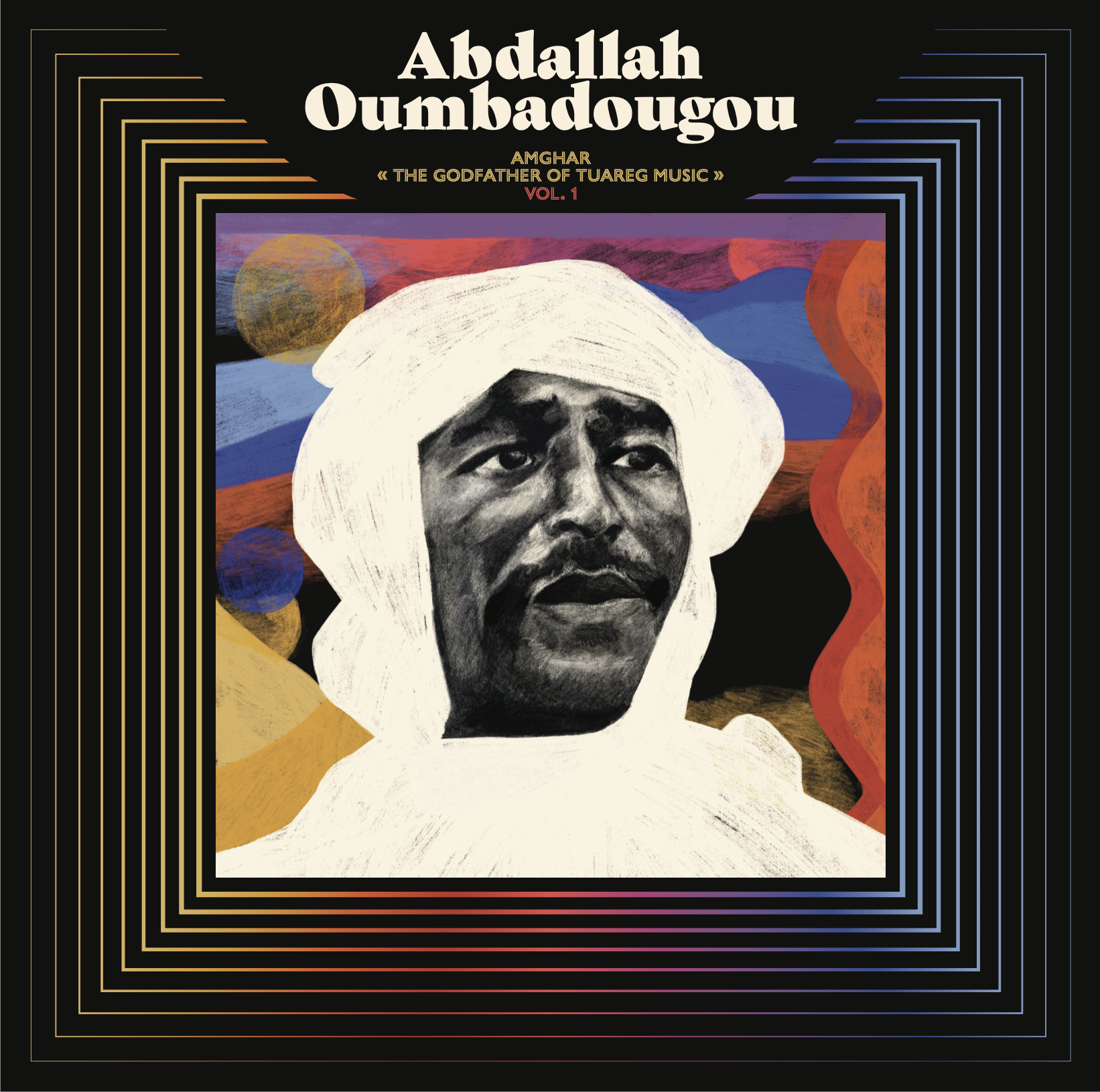ABDALLAH OUMBADOUGOU "Amghar: The Godfather of Tuareg Music - VOL. 1" (Petaluma)
Add Date: 3/19/2024
Release Date: 3/1/2024
FCC: Clean
Focus Tracks: Tigrawahi talgha, Iwouksane, Le iwitian ourgueza gueakelen
Formats: NACC World, Non-Comm AAA, NACC Top 200
RIYL: Mdou Moctar, Bombino, Tinariwen
“Just sheer beauty.....a fittingly majestic collection for the desert blues legend. And with it the ‘Godfather of Tuareg Music’ lives on.” - Aquarium Drunkard
“Abdallah Oumbadougou’s music is astounding, with guitar lines that seep into one’s pores and lyrics addressing revolution, homesickness, and lost love.” - PopMatters
“Fans of the desert blues of Northwest Africa, principally Mali and the Sahara lands, and the music of Ali Farka Toure and Tinariwen, will find this double LP of The Godfather of Tuareg Music, Abdallah Oumbadougou, the innovative late guitarist, essential" - Glide Magazine
On March 1, Petaluma Records released Amghar: The Godfather of Tuareg Music - VOL. 1, a compilation from the late Abdallah Oumbadougou, the Saharan-born Tuareg guitarist and originating architect of the “Desert Blues” genre. The double vinyl LP features 14 tracks remastered by 5-time GRAMMY-winning engineer Michael Graves, and includes 6 unreleased, never-before-heard original songs. The album is now available digitally and as a double vinyl LP.
Amghar has been met with praise from Aquarium Drunkard, Bob Boilen’s My Tiny Morning Show, Glide Magazine, Guitar World, PopMatters, World Music Central and more. Far Out Magazine called the collection “a brilliant testament to his vastly overlooked output” and journalist Patrick Lyons in his “Inbox Infinity” Substack noted, “If you've been a fan of any of the Tuareg musicians that have come to prominence in indie rock circles in the last decade-plus, you have Oumbadougou to thank.”
For the first time, Amghar: The Godfather of Tuareg Music - VOL. 1 compiles studio recordings that Oumbadougou made in the first decade of the 21st century to create a broad survey of the work by a revolutionary guitarist and community leader whose impact in spreading awareness of Touareg music and culture cannot be overstated.
Abdallah Oumbadougou is a seminal figure in development of what western audiences have termed “Desert Blues” or “Tuareg rock,” but which was originally known as assouf, which means ‘longing’, ‘nostalgia’, ‘the pain that isn’t physical’ in Tamashek, the language of the Tuareg; a large and diverse group of peoples that inhabit the Sahara in a vast area across northwest Africa. “Amghar,” a Berber term for a tribal chief, is a reference to the artist’s role in shaping this culture, and makes the case for Oumbadougou’s legendary status as an instrumentalist, narrator, and a worthy rock guitar hero. Oumbadougou’s early work was instrumental in influencing current successful Tuareg musicians such as Mdou Moctar, Bombino and Tinariwen.“
He was like a father to us. Like our first inspiration,” says the Nigerien Tuareg superstar Bombino, who became a close friend in the mid 1990s, when Abdallah’s star was at its zenith. “He was among the first musicians to bring us the music and take it far. He made it possible for us to know it.”
“I remember Abdallah when we were young.” Recalls Ibrahim ag Alhabib, founding member of Tinariwen. “He was part of the story, and maybe there’s not enough about him now in the history. I think he gave something important to the Tamashek, a message for the young.”Amghar: The Godfather of Tuareg Music - VOL. 1 provides an essential overview of the music that Oumbadougou was able to record in a formal studio setting, and reveals the vibrant sound of contemporary Tuareg songwriting that he himself played an essential role in defining. The brand new portrait of Abdallah that adorns the album’s cover art was created by Nigerian-born illustrator Diana Ejaita, an accomplished fine artist and illustrator who has created 8 covers for the New Yorker magazine.
The liner notes of Amghar, written by Andy Morgan, also provide a crucial element for appreciating these recordings. Morgan, who covered Sahel music for nearly two decades (and at one point managed Tinariwen), provides an in-depth historical context about Abdallah Oumadougou’s storied life. The France-based Ishamar guitarist Moussa Bilalan provided lyrical translations for the songs in Tamashek, French and English and thus brings Oumbadougou’s songs to life, showing them to be both front-line reports and poems.
The influence that Oumbadougou continues to exert through his music is palpable in these tracks, along with his dedication to singing the story of his tribe. This collection provides a ready entry point for both faithful supporters and new listeners alike to celebrate his work, and opens a new chapter for exploring his legacy.
